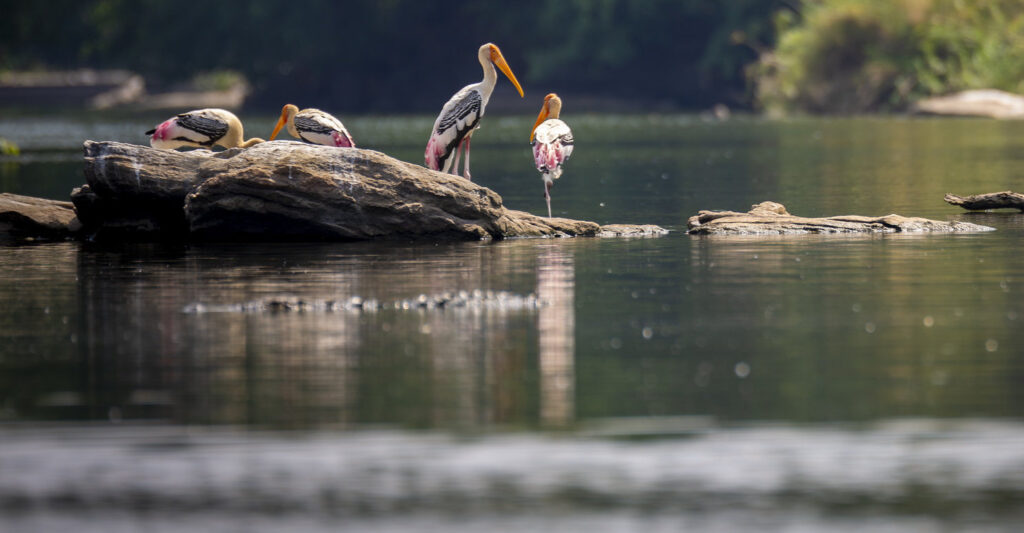
India is a country rich in biodiversity, with diverse ecosystems ranging from the Himalayan mountain range to the coastal plains and dense forests. However, the rapid urbanization, climate change, and water scarcity have put immense pressure on these ecosystems. One of the key elements required to protect India’s biodiversity is ensuring that water resources are managed effectively. Smart water storage systems could play a significant role in this regard by improving water availability, enhancing conservation efforts, and maintaining ecological balance.
The Importance of Water for Biodiversity
Water is a critical resource for the survival of all living organisms. In India, where agriculture, livestock, and wildlife are heavily dependent on consistent water supply, disruptions in water availability can have devastating effects on biodiversity. Droughts, floods, and irregular monsoons often exacerbated by climate change can alter habitats, affecting everything from plant life to migratory species. Proper water management is therefore essential to protect both flora and fauna.
What is Smart Water Storage?
Smart water storage refers to the use of advanced technologies such as sensors, data analytics, and IoT (Internet of Things) systems to manage water resources efficiently. These systems not only store water but also monitor and control water usage in real-time, optimize water distribution, and prevent wastage. In the context of protecting biodiversity, smart water storage systems can help create a sustainable, stable water supply in critical habitats for wildlife and agriculture, ensuring their long-term survival.
Ensuring Equitable Water Distribution
One of the key benefits of smart water storage is the ability to distribute water equitably. India’s biodiversity hotspots, including areas like the Western Ghats, Sundarbans, and the Himalayan range, face varying levels of water scarcity. With smart water storage, it becomes possible to track water usage patterns and redirect resources to areas facing shortages. This ensures that vulnerable ecosystems and wildlife have access to the water they need during dry spells, preventing ecosystem collapse and maintaining the balance of flora and fauna.
Preserving Wetlands and Forests
Wetlands and forests are crucial habitats for numerous species, but they are often threatened by erratic water availability. Smart water storage solutions can help maintain these environments by ensuring that water is stored during rainy seasons and released during drier months. For example, in the case of forest ecosystems, smart water systems can help monitor the water table levels and predict the needs of surrounding flora and fauna. By providing sufficient water during critical times, these ecosystems remain stable and able to support diverse species.
Boosting Agriculture and Reducing Water Conflicts
India’s rural population, which often relies on traditional farming practices, suffers from uneven water distribution, especially in times of drought. Smart water storage systems can optimize the distribution of water for irrigation, ensuring that crops are watered efficiently without draining resources. By increasing agricultural productivity and ensuring sustainable water use, these systems can prevent human-wildlife conflicts over water resources. Moreover, they help reduce the strain on natural water bodies, allowing these ecosystems to flourish.
Climate Change Adaptation
With the growing impact of climate change, India’s weather patterns are becoming more unpredictable. Smart water storage solutions offer a robust way to adapt to these changes. By collecting and managing rainwater and runoff, these systems can store water in times of excess and distribute it during periods of scarcity. This helps in maintaining the overall ecological balance, ensuring that water-dependent species have a constant supply throughout the year.
Conclusion
In conclusion, smart water storage systems are crucial for the protection of India’s biodiversity. By ensuring a more efficient, equitable, and sustainable use of water resources, these systems help safeguard the habitats of endangered species, maintain ecosystems, and reduce the impact of climate change. As India continues to face challenges related to water scarcity and climate change, investing in smart water management is essential for preserving its rich biodiversity for future generations.


